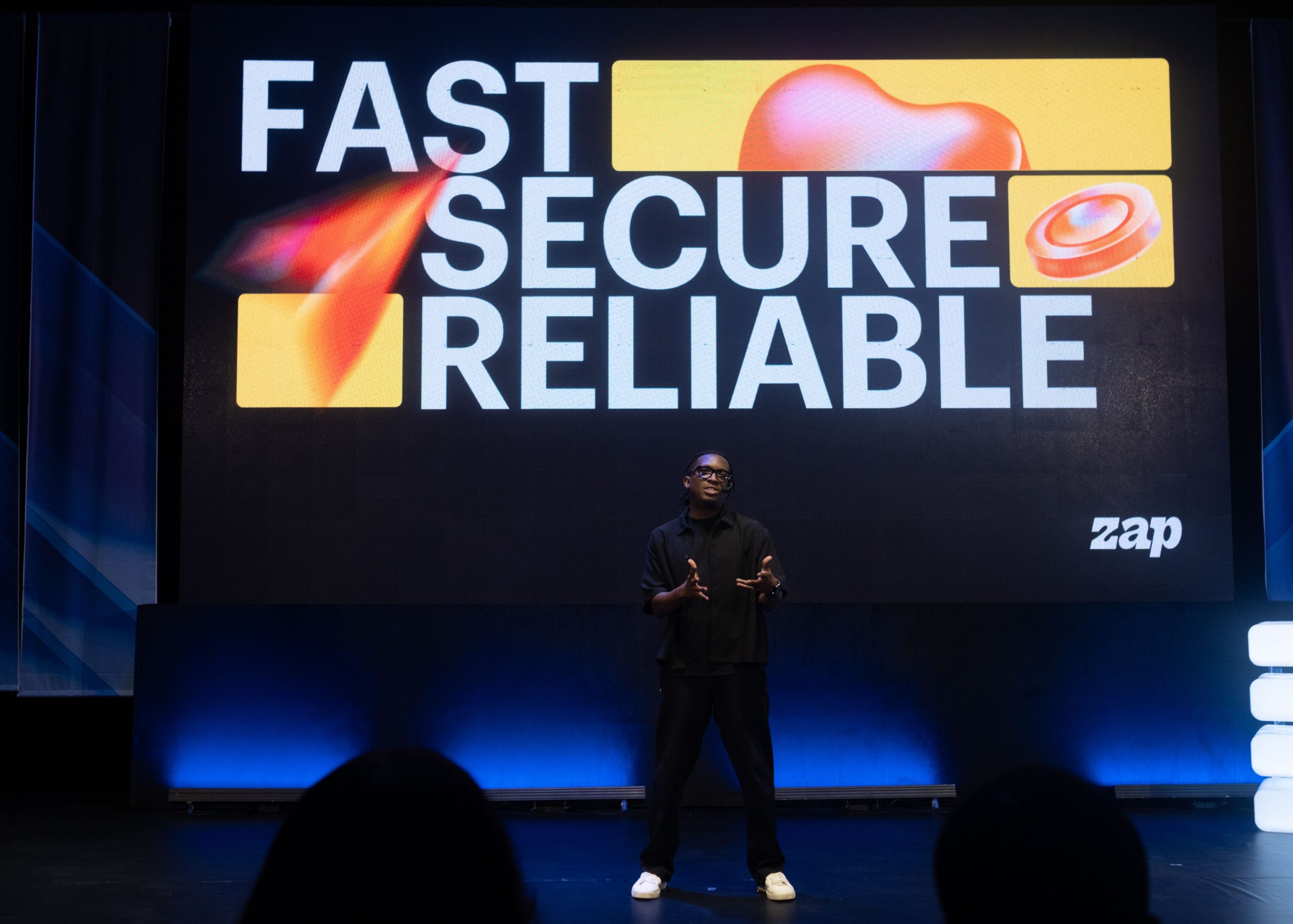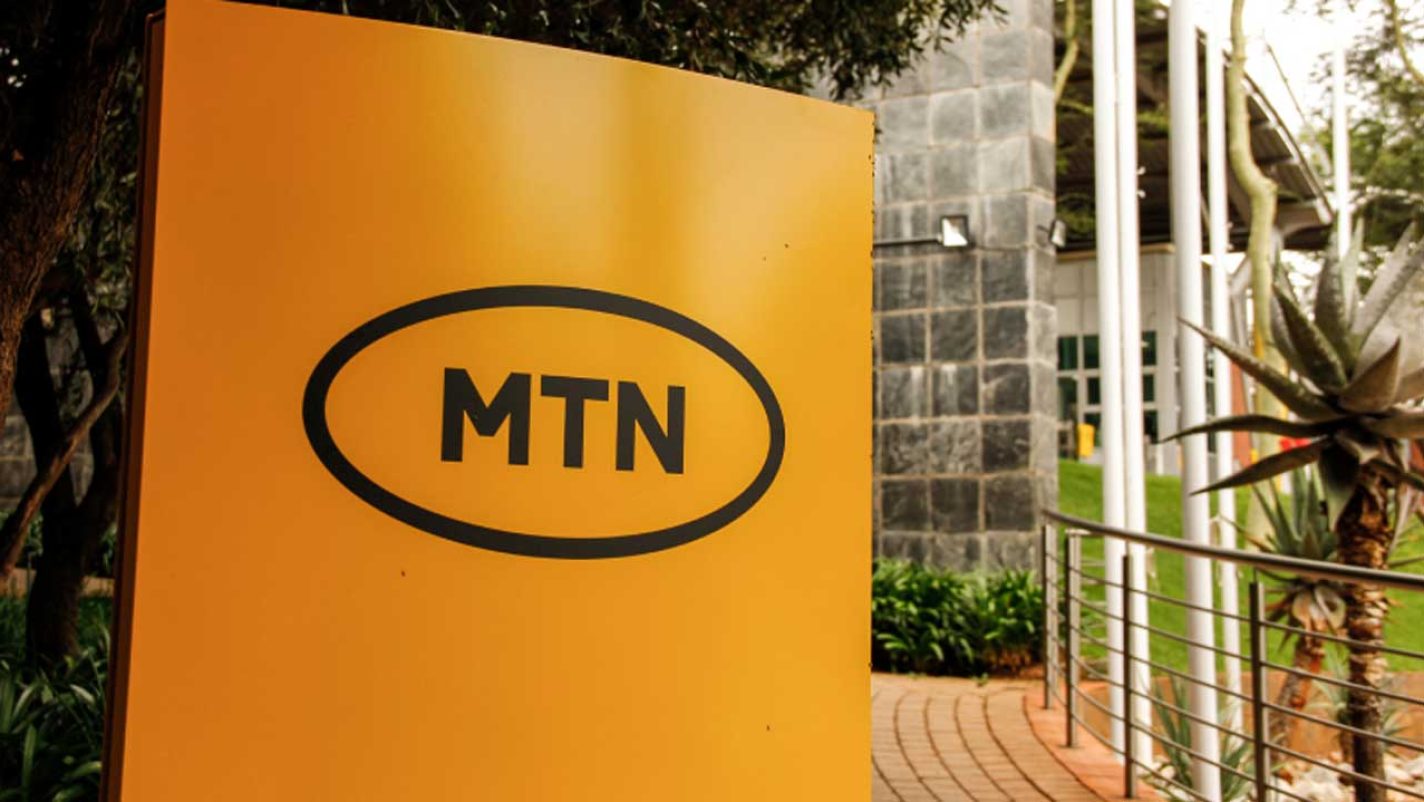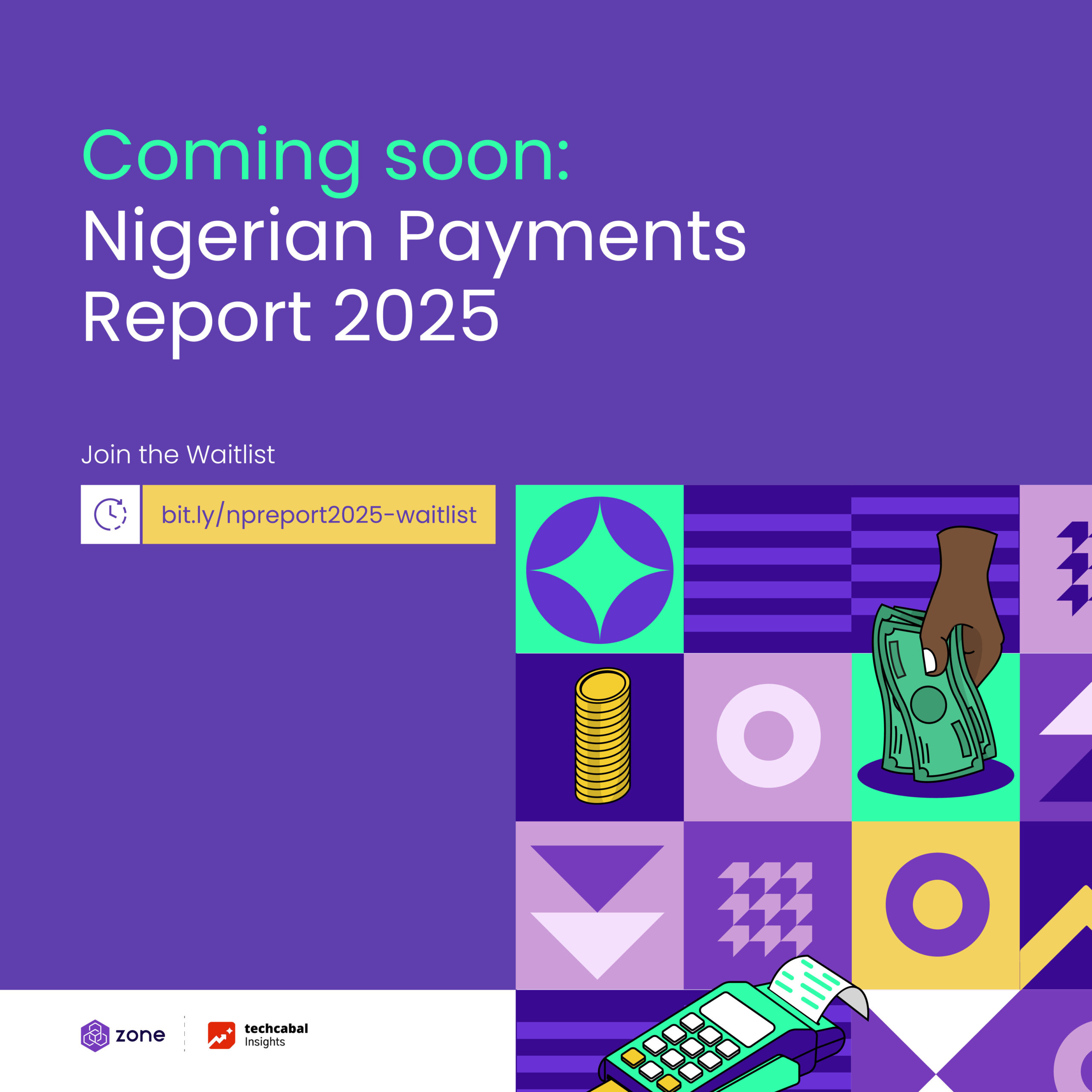- 👨🏿🚀TC Daily
- Posts
- Zap, zapped, fined
Zap, zapped, fined
Inside: Bolt launches electric tricycles in Lagos.


Happy Workers’ Day! ☀️️️
Here’s to every hard worker—that’s you reading this and every member of our newsletter team—out there killing it at work. You’re a rockstar!
In case you didn’t know, the Workers’ Day celebration dates back to the 19th century, when labour groups fought for the right not to die at work. Thanks to them we now have 8-hour workdays. Previously, people often worked 12–16 hours a day, six days a week!Make sure to take some time off to breathe, reflect, and maybe say a prayer for the bold visionaries who made 9–5 working hours possible. And if you’re already too rested and need a nudge to get back in the zone, you can borrow inspiration from today’s My Life in Tech subject, Adora Nwodo, who is refusing to rest on her laurels. After all, the reward for work is more work.
Also, if you’re in Lagos, don’t forget, ride-hailing drivers are set to commence their strike today.
We have some heavy hitters in today’s dispatch. Let’s get to it!

Fintech
Nigeria's Central Bank (CBN) zaps Paystack with $155,400 fine

Paystack has run the gamut.
Just a little over a month since launching Zap, its first consumer product, and fending off a trademark dispute with Zap Africa, the fintech has now been slapped with ₦250 million ($155,400) by Nigeria’s Central Bank (CBN) for a licensing violation.
Here’s where they went wrong: To function as a deposit-taking product, a financial institution must possess a microfinance and banking license. Paystack holds a switching and processing license, which allows it to route financial transactions between banks and other institutions but not to hold customer funds, thereby breaching the CBN’s licensing rules.
CBN—which has increasingly relied on fines to enforce regulatory compliance—claims that Paystack’s newly launched product violates its regulatory license by operating as a wallet.
For the curious (or confused): A wallet typically refers to a digital account that stores consumer funds, allows payments and transfers, and often provides financial management tools.
However, Zap does not hold user funds directly but operates in partnership with Titan Trust Bank, which is licensed to hold deposits.
The fine is Paystack’s largest publicly known regulatory penalty since it received CBN approval in 2016. It also underscores the risks fintechs face as they expand beyond business-to-business payments into consumer-facing products.
The fintech has yet to make any public comments so far. But one thing is clear: with great power comes regulatory accountability.
Seamless Global Payments With Fincra.

Issue accounts in NGN, KES, EUR, USD & more with one integration. Send & receive funds seamlessly across borders; no more banking hassles or complex conversions. Create an account for free & go global today.
Mobility
Bolt launches electric tricycles in Lagos

If you live in Lagos, a new “tricycle option may start appearing when you try to book a ride on the Bolt app.
Starting May, Bolt is rolling out 25 electric tricycles—yep, kekes—in Lagos, built in partnership with SGX Mobility. It’s the company’s first EV trike rollout in Nigeria, expanding on its existing keke operations in Jos and Uyo.
The numbers? ₦3.2 million ($2,000) per vehicle, with a ₦208,000 ($130) down payment and flexible lease terms (₦32,000∼$20 weekly or ₦156,000∼$97 monthly). Battery swaps cost about ₦6,500 ($4) daily—nearly half the fuel cost for a regular keke. Drivers can own their rides in 18–24 months, all while dodging rising petrol prices and maintenance headaches.
A better alternative? Tricycles, locally known as “keke,” are ubiquitous in Lagos. They’re cheap, nimble, and already fill mobility gaps in neighborhoods underserved by traditional taxis or buses. But petrol-powered kekes are increasingly expensive to operate. Bolt says it expects its EV alternative to outperform petrol models on margins within 12–24 months, as drivers complete their lease terms and operational savings compound.
Bolt’s pitch is simple: better driver economics, lighter costs, and a lease-to-own model that isn’t Moove or LagRide. Lower commissions (15% versus the usual 25%) and predictable payments might just make this a smarter deal. Still, Lagos drivers will be the real test. If it clicks, Bolt’s ready to take it across Nigeria—and even into Ghana, Uganda, and Tunisia.
The EV future? It might just come in three wheels.
Never miss an update from Paystack

Subscribe to Paystack for a curated dose of product updates, insights, event invites and more. Subscribe here →
Telecoms
MTN Nigeria was profitable again in Q1 2025, thanks to the tariff hike

Things have probably started turning around for MTN Nigeria, the country's largest telecom operator with 84 million subscribers. After a dismal 2024 financial year where it lost revenue and ended in the red, CEO Karl Toriola’s yellow team is smiling to the bank again—and at the bank (hold this thought).
For the second consecutive quarter, MTN Nigeria was profitable. In Q1 2025, it made ₦133.7 billion ($83.4 million) in profit from a total revenue of ₦1.06 trillion ($660 million).
If you haven't had time to read the report yet, here are other mind-boggling numbers from the telecom operator’s quarter:
- MTN Nigeria's top revenue sources remained data and voice.
- Data pulled in ₦528.98 billion ($330 million); this grew by 51.6% from Q1 2024, showing that MTN made more money from Nigerians subscribing data, thanks to the telecom tariff hike.
- Voice pulled in ₦353.13 billion ($220.3 million); this grew by 30% from Q1 2024, also showing the effect of the higher tariff on calls kicking in.
- SMS revenue, fourth-highest on the list, also brought in ₦39.58 billion ($25 million).
Interestingly, MTN Nigeria also grew its revenue from value-added services (VAS) by 57%, reaching ₦34.62 billion ($22 million) for the quarter. With these unholy numbers, MTN is making more revenue than some non-tier-1 Nigerian banks.
Value-added services include airtime borrowing, mobile money, SIM backup, and voice services. This means MTN is making more money from people who borrow airtime, showing just how much Nigerians need access to credit. With the higher tariffs, Nigerians are borrowing more in airtime and possibly data.
Investors on the Nigerian Exchange (NGX) reacted well to the news. MTN’s share price dropped from ₦255.5 ($0.16) to ₦240 ($0.15) on Tuesday but bounced back to ₦250 ($0.16) on Wednesday, up by 4.17%. On Tuesday alone, nearly 87 million shares were traded—likely by investors taking advantage of the price swings to make a profit.
MTN has been growing its revenue year-on-year (YoY) and it is off to a strong start in Q1 2025. It also spent ₦202.4 billion ($126.2 million) in infrastructure upgrades as it battles poor service quality.
But higher tariffs alone won’t carry MTN. With inflation still rising and disposable income shrinking, subscribers may soon start cutting back. The company’s 84 million users are spending more—but how often, and how much? MTN will keep borrowing to fund its network, but it’s doing so in an economy where costs are high, policies are unpredictable, and the real value of telecom consumption is still maturing.
Be the First to Access the Nigerian Payment Report 2025

The Nigerian Payment Report 2025 dives into the trends, challenges, and innovations shaping the future of digital payments. Join the waitlist today to get early access to the report when it goes live! Join the waitlist
Cryptocurrency
Nigeria's Web3 sector needs more investor faith

More than 25 million Nigerians now use crypto, especially stablecoins like USDT.
But even with all that activity, Nigerian Web3 startups only raised $20 million in 2024. That is less than what one good round used to bring in a few years ago.
Why is that? Local startups are building real products, but investors are playing it safe. Most of the money now goes to infrastructure companies like Zone and Hyperbridge, while fintech-style Web3 platforms, once venture capital (VC) favourites, are being left behind. Instead of big funding rounds, startups are now relying on grants, accelerators, and small checks.
The bigger problem is the uneven playing field. Foreign Web3 companies come in with deep pockets, global investors, and better support in their home markets. Nigerian startups do not have that. Even moving abroad is not simple. Expanding into countries like South Africa or Kenya means dealing with tough rules and high costs.
Some success stories—like Nestcoin and Xend Finance—have shown it’s possible to win global attention. But these wins can also feed the idea that local Web3 startups need to move abroad to survive. And that perception is hard to shake.
The talent is here. The users are here. But without more investor confidence and clear rules, Nigeria’s best Web3 builders may keep looking elsewhere for growth.
Is there value for traditional VC firms—beyond Web3-focused investors—to pay more attention to the sector? What will it take to build conviction in this market?
Some things are clear: local demand is secondary. There's raw talent, but given the few solutions in the market, some of them are untested. It's a Wild West industry, but regulation is restoring order to the chaos. Will the winds blow again on Nigeria's Web3 market?
Dive deeper into the story from our crypto reporter, Emmanuel Nwosu.
CRYPTO TRACKER
The World Wide Web3
Source:

Coin Name | Current Value | Day | Month |
|---|---|---|---|
| $94,935 | - 0.16% | + 14.00% | |
| $1,808 | + 0.04% | + 2.19% | |
| $0.0521 | + 58.90% | + 68.11% | |
| $148.72 | + 1.04% | + 17.40% |
* Data as of 06.30 AM WAT, May 1, 2025.
Events
- It's day two at the biggest crypto and Web3 event tomorrow. Token2049, hosted in Dubai, UAE, will play host to the biggest thinkers, creators, builders, operators, and global policy-makers in the space. If you've got time, you might still catch the event, connect, and discuss the future of Web3. If you're there already, spoiler: there's an after-party for platinum members Get tickets..

Written by: Opeyemi Kareeem and Emmanuel Nwosu
Edited by: Faith Omoniyi
Want more of TechCabal?
Sign up for our insightful newsletters on the business and economy of tech in Africa.
- The Next Wave: futuristic analysis of the business of tech in Africa.
- TC Scoops: breaking news from TechCabal
P:S If you’re often missing TC Daily in your inbox, check your Promotions folder and move any edition of TC Daily from “Promotions” to your “Main” or “Primary” folder and TC Daily will always come to you.

How was today's edition? |


